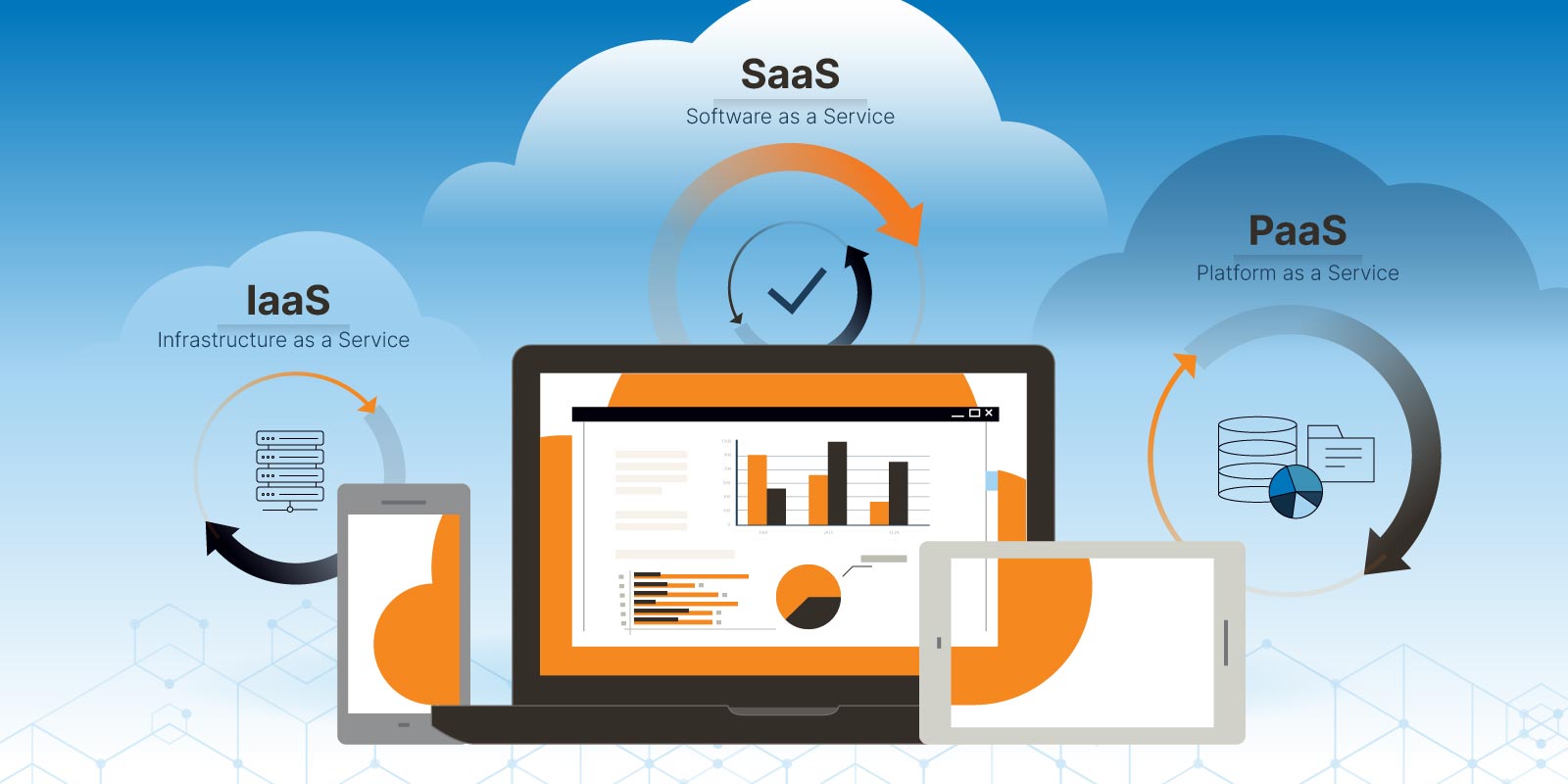Contact information.
-
Address"Ekzarh Yosif" street, 31, 1000 Sofia, Bulgaria
-
Phone:+359 2 980 95 99
-
Websitewww.balkanservices.com

In part one of this series on cloud technologies, we looked at their nature, purpose, and benefits, and in part two – the differences between public, private, and hybrid clouds.
Part three looks at the main cloud service delivery models.
Now we are going to clarify the difference between IaaS, PaaS and SaaS and reveal the nuances that make each of these cloud services distinct and valuable.
Read more: What is cloud technology – characteristics, purpose, benefits: Types of cloud services – IaaS, PaaS, SaaSThe basic and lowest ” step” of cloud services is infrastructure as a service (IaaS), which involves providing the infrastructure of servers in data centers. This is a cloud-based alternative to owning physical equipment (so-called op-premises) that allows the purchase of as many resources as needed and offers greater flexibility.
Companies can rent physical or virtual servers from the infrastructure and use them according to their needs.
This feature leads to hidden costs as companies rent a partial cloud solution. Organizations often don’t realize that they will have to invest extra money to get a complete working system.
Popular IaaS providers are Microsoft Azure, Amazon Web Services (AWS), and Google Compute Engine.
The next level of cloud service provision is Platform as a Service (PaaS), where not just a computer resource is provided, but also a working platform, such as a database management system. PaaS is designed for software developers, providing them with the environment to create and manage their own applications and software.
Typically, the provider has a commitment to maintain the hardware, install an operating system on it, and then deploy the appropriate platform.
The customer in turn only needs to target a specific type of business software that will use that database. The company can even keep the database in another data center or in-house.
In this sense, the service is not complex, but it relieves companies from certain administrative tasks, from creating backups, and from providing new versions of different types of platforms. Of course, all this affects the price of the cloud service and it is higher than the price of IaaS (Infrastructure as a Service).
Examples of platforms as a service are Azure SQL Database, Google App Engine, and Adobe Magento Commerce Cloud.
Our team is here to listen carefully and offer the right solution for you.

The highest level of cloud services is software as a service (SaaS). With this model, organizations don’t get one or a few platforms, but a complete working solution.
For companies, it no longer matters what platforms or services the business software uses, where it resides, and how it is administered.
With this highest level of cloud technology, a business can have a complete system that only requires the internet and a browser to use.
Excellent examples are cloud-based ERP and BI systems. Other examples of well-known solutions offered as SaaS are Office 365, Dropbox, Mailchimp, Zoom, and Google Drive.
For 2023, Gartner forecasts year-over-year growth of nearly 31% for the IaaS model, 24% for PaaS, and 18% for Software as a Service (SaaS).* According to Gartner, in 2022, spending on Infrastructure as a Service (IaaS) will achieve the highest growth among the various cloud service models, at 30.63%, while spending on Platform as a Service (PaaS) will grow 26.1%.
Software as a Service (SaaS) is likely to retain the largest market share in the public cloud, with spending expected to reach $176.6 billion in 2022.
For 2023, Gartner forecasts year-over-year growth of nearly 31% for the IaaS model, 24% for PaaS, and 18% for software as a service (SaaS).*
Software as a Service (SaaS) can also be divided into subcategories that bring specific benefits to companies. These are the so-called “single-tenant” and “multi-tenant clouds”, which differ in the way they use computing resources.
At Balkan Services we have expert knowledge of business, technology, and legislation, and we speak all three languages. We will listen carefully and advise you on choosing the right business system for your needs.
Balkan Services has been implementing business software since 2006 and has completed more than 690 projects for over 360 companies. We follow a proven implementation methodology with clear steps and know-how on best practices.